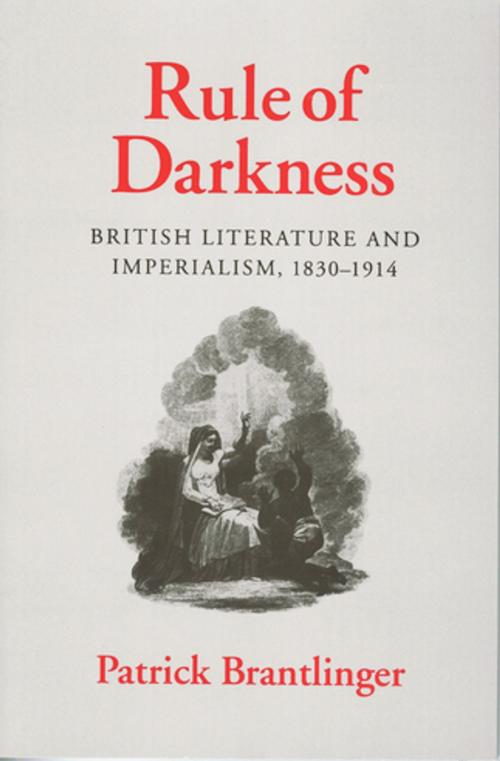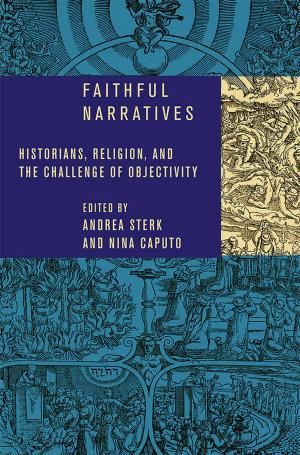Rule of Darkness
British Literature and Imperialism, 1830–1914
Fiction & Literature, Literary Theory & Criticism, British, Nonfiction, Social & Cultural Studies, Political Science| Author: | Patrick Brantlinger | ISBN: | 9780801467028 |
| Publisher: | Cornell University Press | Publication: | January 15, 2013 |
| Imprint: | Cornell University Press | Language: | English |
| Author: | Patrick Brantlinger |
| ISBN: | 9780801467028 |
| Publisher: | Cornell University Press |
| Publication: | January 15, 2013 |
| Imprint: | Cornell University Press |
| Language: | English |
A major contribution to the cultural and literary history of the Victorian age, Rule of Darkness maps the complex relationship between Victorian literary forms, genres, and theories and imperialist, racist ideology. Critics and cultural historians have usually regarded the Empire as being of marginal importance to early and mid-Victorian writers. Patrick Brantlinger asserts that the Empire was central to British culture as a source of ideological and artistic energy, both supported by and lending support to widespread belief in racial superiority, the need to transform "savagery" into "civilization," and the urgency of promoting emigration.
Rule of Darkness brings together material from public records, memoirs, popular culture, and canonical literature. Brantlinger explores the influence of the novels of Captain Frederick Marryat, pioneer of British adolescent adventure fiction, and shows the importance of William Makepeace Thackeray's experience of India to his novels. He treats a number of Victorian best sellers previously ignored by literary historians, including the Anglo-Indian writer Philip Meadows Taylor's Confessions of a Thug and Seeta. Brantlinger situates explorers' narratives and travelogues by such famous author-adventurers as David Livingstone and Sir Richard Burton in relation to other forms of Victorian and Edwardian prose. Through readings of works by Arthur Conan Doyle, Joseph Conrad, H. Rider Haggard, Rudyard Kipling, John Hobson, and many others, he considers representations of Africa, India, and other non-British parts of the world in both fiction and nonfiction.
The most comprehensive study yet of literature and imperialism in the early and mid-Victorian years, Rule of Darkness offers, in addition, a revisionary interpretation of imperialism as a significant factor in later British cultural history, from the 1880s to World War I. It is essential reading for anyone concerned with Victorian culture and society and, more generally, with the relationship between Victorian writers and imperialism, 'and between racist ideology and patterns of domination in modern history.
A major contribution to the cultural and literary history of the Victorian age, Rule of Darkness maps the complex relationship between Victorian literary forms, genres, and theories and imperialist, racist ideology. Critics and cultural historians have usually regarded the Empire as being of marginal importance to early and mid-Victorian writers. Patrick Brantlinger asserts that the Empire was central to British culture as a source of ideological and artistic energy, both supported by and lending support to widespread belief in racial superiority, the need to transform "savagery" into "civilization," and the urgency of promoting emigration.
Rule of Darkness brings together material from public records, memoirs, popular culture, and canonical literature. Brantlinger explores the influence of the novels of Captain Frederick Marryat, pioneer of British adolescent adventure fiction, and shows the importance of William Makepeace Thackeray's experience of India to his novels. He treats a number of Victorian best sellers previously ignored by literary historians, including the Anglo-Indian writer Philip Meadows Taylor's Confessions of a Thug and Seeta. Brantlinger situates explorers' narratives and travelogues by such famous author-adventurers as David Livingstone and Sir Richard Burton in relation to other forms of Victorian and Edwardian prose. Through readings of works by Arthur Conan Doyle, Joseph Conrad, H. Rider Haggard, Rudyard Kipling, John Hobson, and many others, he considers representations of Africa, India, and other non-British parts of the world in both fiction and nonfiction.
The most comprehensive study yet of literature and imperialism in the early and mid-Victorian years, Rule of Darkness offers, in addition, a revisionary interpretation of imperialism as a significant factor in later British cultural history, from the 1880s to World War I. It is essential reading for anyone concerned with Victorian culture and society and, more generally, with the relationship between Victorian writers and imperialism, 'and between racist ideology and patterns of domination in modern history.















